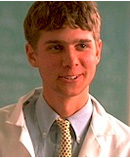
|
|
College students reduce high blood pressure, anxiety, and depression via the Transcendental Meditation technique The Transcendental Meditation technique is an effective method to reduce blood pressure, anxiety, depression, and anger among at-risk college students, according to a new study published in the American Journal of Hypertension, December 2009 issue. The project, directed by Dr. John Hagelin, director of the Institute for Science, Technology, and Public Policy, was conducted at American University with 298 university students randomly allocated to either the Transcendental Meditation technique or a wait-list control group over a three-month intervention period. A subgroup of 159 subjects at risk for hypertension was analyzed separately. At baseline and after three months, blood pressure, psychological distress, and coping ability were assessed. For the students at risk for developing hypertension, significant improvements were observed in blood pressure, psychological distress, and coping. Compared to the control group, students practicing the Transcendental Meditation program showed reductions of 6.3 mm Hg in systolic blood pressure and 4.0 mm Hg in diastolic. These reductions are associated with a 52% lower risk for development of hypertension in later years. "This well-controlled clinical trial found that blood pressure can be effectively lowered in students with an effective mind-body intervention—which has major implications for the prevention of hypertension, heart attacks, and strokes in adulthood," said Robert Schneider, M.D., FACC, director of the Institute for Natural Medicine and Prevention and study principal investigator and coauthor." The findings on mental health are also timely. An estimated 18 million students are dealing with mental health issues on college campuses. Statistics from colleges nationwide indicate a 50% increase in the diagnosis of depression, and more than twice as many students are on psychiatric medications as a decade ago. According to recent national surveys of campus therapists, more students than ever are seeking psychiatric help. College students are prone to psychological distress caused by interpersonal and social problems, pressures to succeed academically, financial strains, and uncertain futures. For the entire sample in this study, there was a significant improvement in students' mental health. Other coauthors included Dr. Maxwell Rainforth, Dr. John Salerno, Dr. Fred Travis, Dr. Sarina Grosswald, Dr. Carolyn-Gaylord King, and Melissa Tanner. Funding was provided by the Abramson Family Foundation, Howard and Alice Settle, Ramani and Louise Ayer, other private donors, and the National Institutes of Health National Center for Complementary and Alternative Medicine. Mario Orsatti, Linda Mainquist, Laura Alcorn, Linda Heaton, Dr. Diane Prather-Huff, Marilyn Ungaro, and Jean Symington Craig assisted in the study. © Copyright 2009, Maharishi University of Management
|
|

